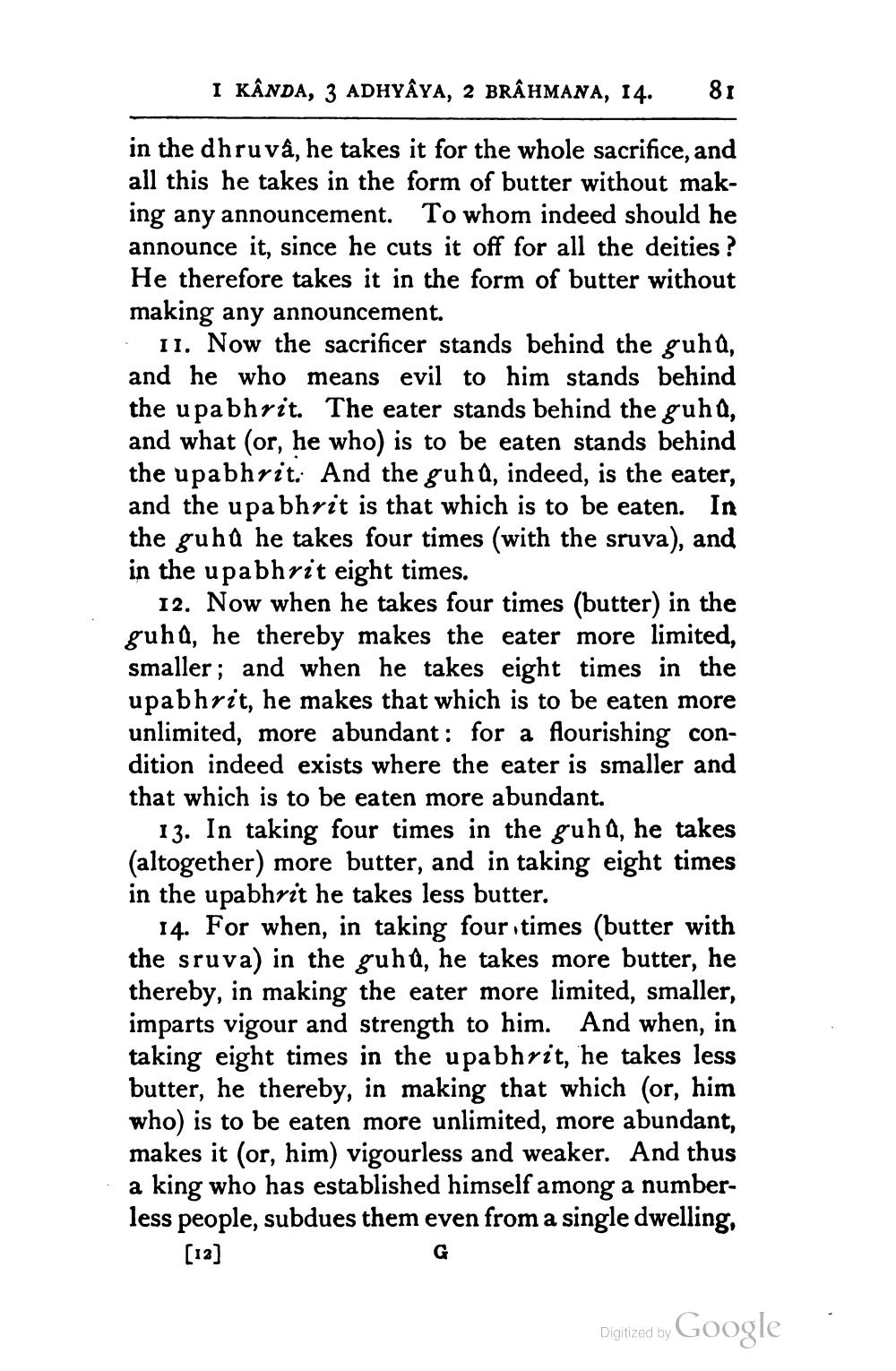________________
I KÂNDA, 3 ADHYAYA, 2 BRÂHMANA, 14.
81
in the dhruvâ, he takes it for the whole sacrifice, and all this he takes in the form of butter without making any announcement. To whom indeed should he announce it, since he cuts it off for all the deities? He therefore takes it in the form of butter without making any announcement. · 11. Now the sacrificer stands behind the guha, and he who means evil to him stands behind the upabhrit. The eater stands behind the guha, and what (or, he who) is to be eaten stands behind the upabhrit. And the guha, indeed, is the eater, and the upabhrit is that which is to be eaten. In the guhû he takes four times (with the sruva), and in the upabhrit eight times.
12. Now when he takes four times (butter) in the guha, he thereby makes the eater more limited, smaller; and when he takes eight times in the upabhrit, he makes that which is to be eaten more unlimited, more abundant: for a flourishing condition indeed exists where the eater is smaller and that which is to be eaten more abundant
13. In taking four times in the guha, he takes (altogether) more butter, and in taking eight times in the upabhrit he takes less butter.
14. For when, in taking four times (butter with the sruva) in the guhů, he takes more butter, he thereby, in making the eater more limited, smaller, imparts vigour and strength to him. And when, in taking eight times in the upabhrit, he takes less butter, he thereby, in making that which (or, him who) is to be eaten more unlimited, more abundant, makes it (or, him) vigourless and weaker. And thus a king who has established himself among a numberless people, subdues them even from a single dwelling,
[12]
Digitized by
Digitized by Google




